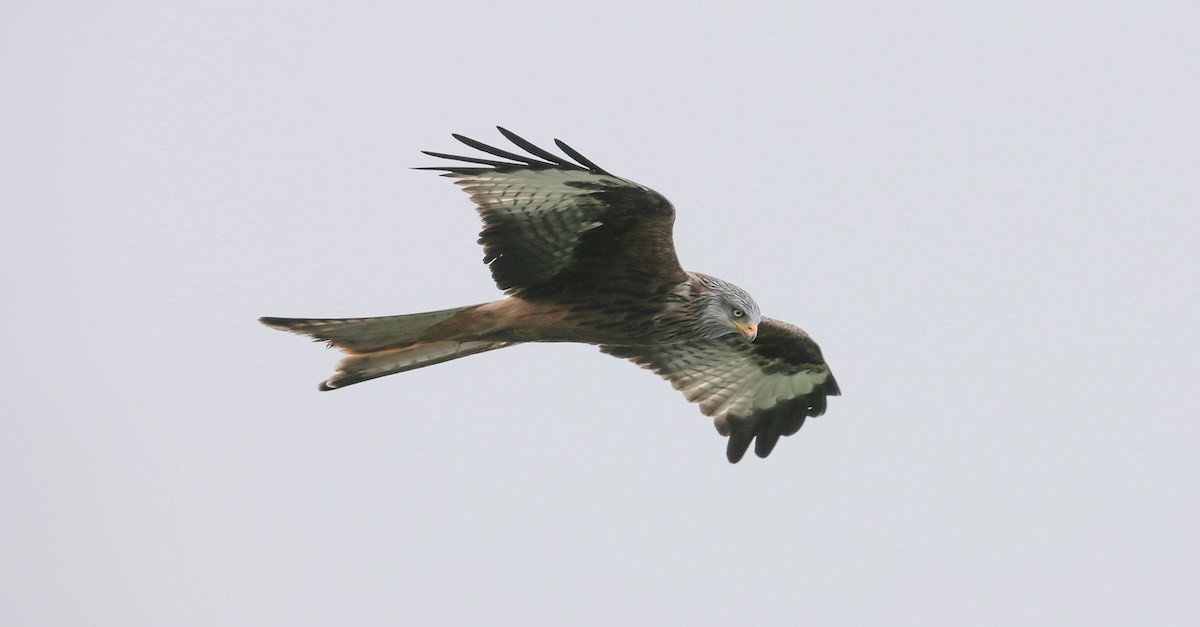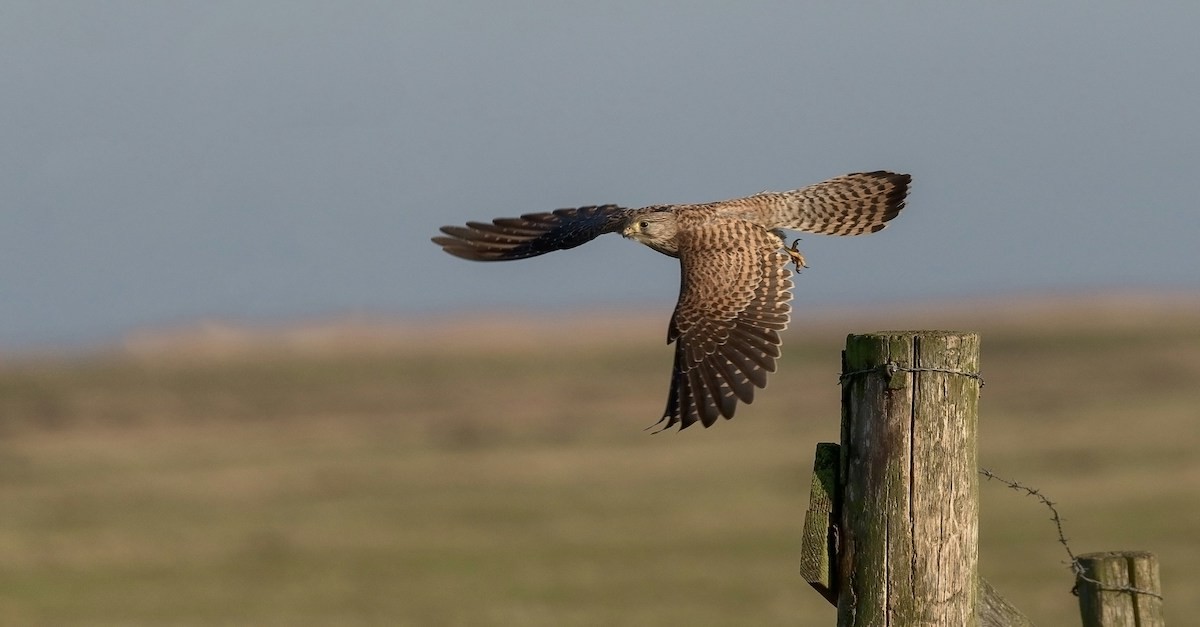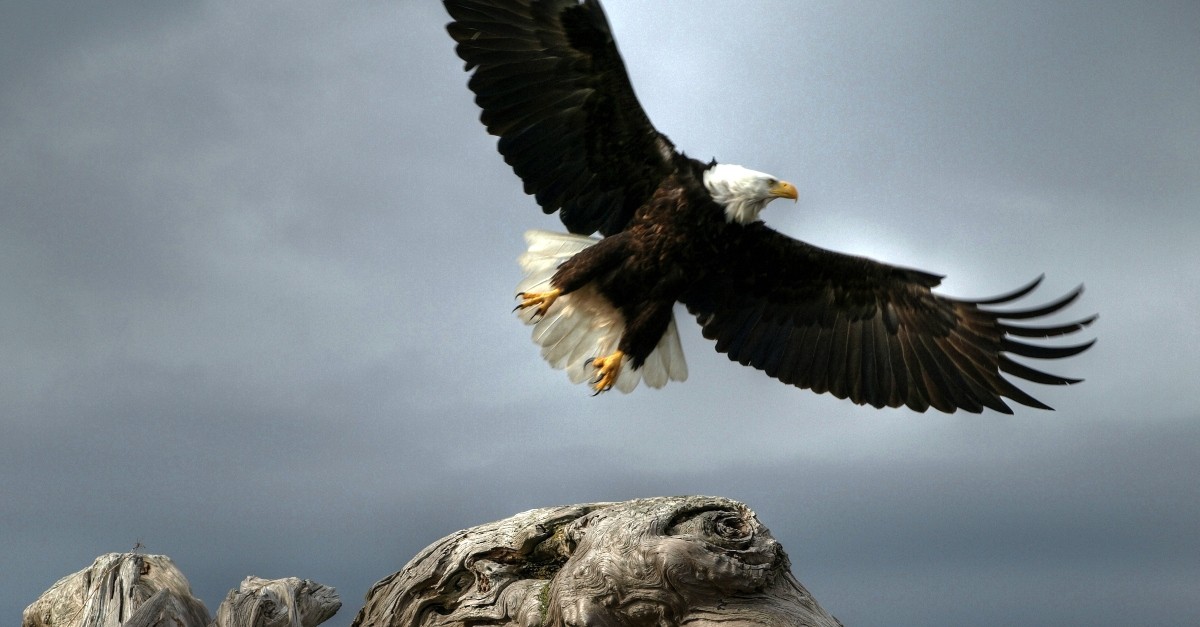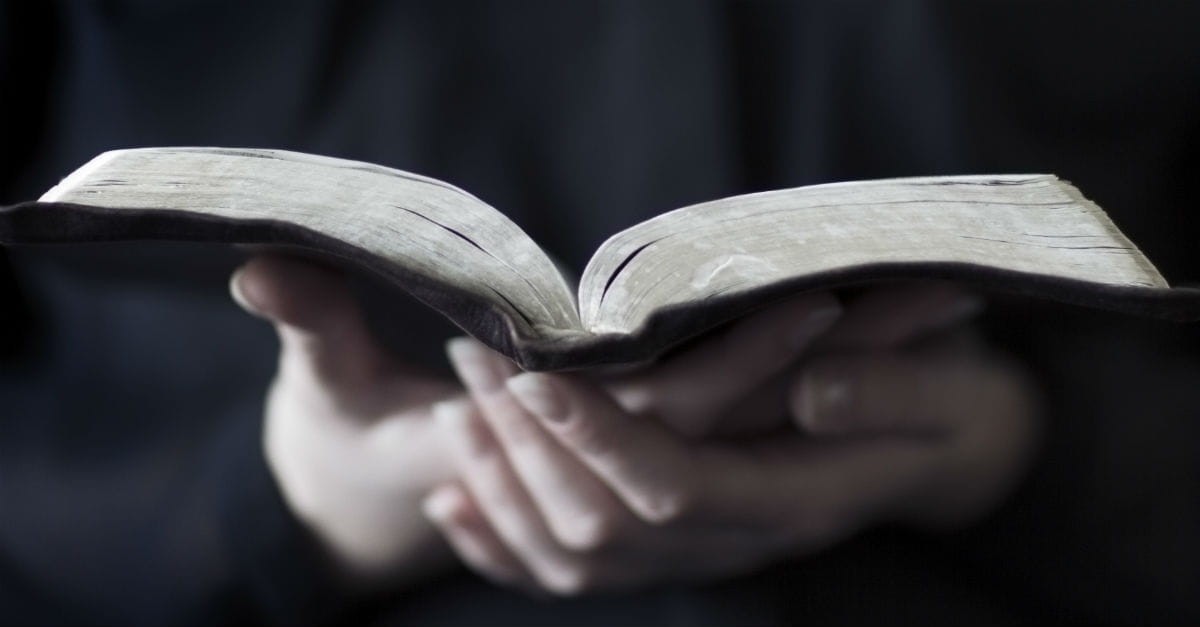
Since the Bible expresses eternal truth from another realm, one unlike our own, the inspired writers use symbol and story to take images and situations from our world to give hints about the kingdom. God chooses to reveal himself in these ways for various reasons.
At times, this frustrates us. Our brains like easy solutions. Symbols and stories challenge our thinking and require us to seek out heavenly revelation to get the point. The disciples showed this frustration with Jesus (Matthew 13:10, John 16:29). And yet the Bible remains full of such images signifying deeper meaning.
Good writing does this since all great stories use details to connect with deeper or universal feelings or truths. The Bible includes these for the same reason: to point us to God and what he wants to say.
One common symbol throughout Scripture is birds. And in Isaiah 46:11, the prophet refers to a “bird of prey” to poetically address a specific situation and God’s action within it.
Photo credit: Unsplash/Kea Mowat

What is the Context for the Bird of Prey in Isaiah 46?
From the east I summon a bird of prey;
from a far-off land, a man to fulfill my purpose.
What I have said, that I will bring about;
what I have planned, that I will do.
The broader context of Isaiah 46 contains a message about the foolishness of idolatry, contrasted with God’s authority. Isaiah speaks directly to the southern kingdom of Judah during a time of anxiety and fear. Babylon had been growing into a powerful empire and threatened Jerusalem. In verses 1-7, Isaiah mocks the Babylonian idols of Bel and Nebo, pointing to their powerlessness yet oppressive beliefs. “Bel” meant “lord” and was associated with Marduk, Babylon’s main idol. Marduk was the god of creation and governance. Nebo was the god of wisdom and writing. Isaiah condemns the Babylonians by revealing the impotence of their idols.
In verses 8-13, Isaiah worships the omnipotence of the one true God. The Lord alone has the power to save, and he will stay faithful to his covenant with Israel. The “bird of prey” in verse 11 symbolizes how God will send an instrument to enact deliverance. During the late eighth and early seventh centuries BC, empires like Assyria and Babylon placed great pressure on Judah. Isaiah foretold Babylon’s rise, how they would conquer Jerusalem and exile the Jews as a consequence for Judah’s continued idolatry. This victory would likely make Babylon boast in their own gods. But Isaiah shows how God will send a “bird of prey” to bring down Babylon, since their idols did nothing. God was in control the whole time and would continue to be.
God shared this with Judah to affirm his plan to exile them, but not without hope for future redemption. Scholars generally believe this “bird of prey” to be Cyrus the Great, the Persian king who would conquer Babylon and ultimately allow the Jews to return to Jerusalem and Judea (Ezra 1). Isaiah refers to Cyrus in chapter 45, as well, as God’s chosen vessel. Isaiah prophesies how God uses all powers, even foreign kings, to fulfill his will and deliver the Jews.
In Hebrew, the “bird of prey” in Isaiah 46:11 is ayit, which means a swift and powerful bird like a hawk, falcon, or eagle. These birds have sharp vision and were renowned hunters. By comparing Cyrus to this bird, the prophet connects him with the focused and unstoppable nature of God’s will and plan.
During their exile, the Jews would also be tempted to trust in the power of idols. Isaiah teaches how their defeat and Babylon’s power had nothing to do with any intrinsic power of Bel or Nebo. The Lord remained sovereign. He actually raises up and controls all leaders, even foreign powers. This went against ancient religious teaching. They associated gods with lands and peoples. If a country won a battle, their god won. In the Old Testament, God continually rebukes this idea. He is God of all peoples and nations, not just the Jews.
Therefore, the Jews shouldn’t turn to idolatry but repent and remain faithful to God, even in exile. For he would bring them back, and since he controls even the most powerful empires, the Jews could trust him.
Photo credit: Unsplash/James Padolsey

What Do Birds of Prey Symbolize?
Birds of prey symbolize many different things throughout history and literature, generally and specifically depending on the actual bird.
Eagles possess strength and vision, soaring high and searching far and wide for their prey. They swoop down with speed and precision. They often symbolize leadership, dominance, and divine authority, and in Isaiah, the eagle represents how swift and sure the change would be from Babylon to another power, all by God’s hand.
Hawks are also amazing hunters in forests, fields, even cities. They take time, strategizing with great focus. Hawks can symbolize diligence and patience before taking action. Biblically, the hawk shows God’s careful and timely planning to fulfill his promises.
Falcons are the fastest creatures on earth, with peregrine falcons capable of diving at over 200 mph. Such speed and precision point to themes of urgency. In Isaiah 46:11, the bird of prey symbolizes a quick and unstoppable force acting as God’s instrument to judge Babylon.
Neither Isaiah nor the Jews were the first and only to use eagles and falcons as symbols. Across cultures, birds of prey symbolize strength, authority, and even sovereignty. Later, the Romans used the eagle to represent strength and military power. They placed the eagle on the standards carried by Roman legions. Losing an eagle in battle was considered a disgrace. Associated with Jupiter, the king of the gods like Zeus, the eagle further symbolized divine favor.
For the prophet Isaiah, ayit referred to those three birds, a collective symbol of strength and authority, like a hunter from the sky. Isaiah reminds his readers of God’s power to use any leader or nation to accomplish his purposes.
Photo credit: Unsplash/Hans Veth

What Are Other Scriptures about Birds of Prey?
The Bible mentions eagles more than any other bird. Also in Isaiah (40:31), the prophet says, “But those who wait on the Lord shall renew their strength; they shall mount up with wings like eagles …” Here the eagle symbolizes a renewal, to rise above the difficult circumstance. Just like eagles soar high in the sky, believers who hope in the Lord will find new strength to overcome.
In Exodus 19:4, God explains his protection over Israel. “You yourselves have seen what I did to Egypt, and how I carried you on eagles’ wings and brought you to Myself.” The Lord uses the majestic image of angels’ wings to show how he both guided and sheltered the descendants of Israel through slavery to deliverance, all to bring them into relationship with him. In Moses’ sermon (Deuteronomy 32:11), he compares God’s actions toward Israel to an eagle stirring up its nest and carrying its young on its wings, an amazing picture of God’s compassion and moving his people to his purpose.
After Isaiah, Ezekiel also uses the eagle to represent political powers and victory. In 17:3-10, Ezekiel uses two eagles to symbolize Babylon and Egypt and their power over other nations. Habakkuk 1:8 describes the Babylonians as swift as eagles or hawks in their military power. “Their horses are swifter than leopards, fiercer than wolves at dusk. Their horsemen gallop ahead; their horsemen come from afar. They fly like an eagle swooping to devour.”
As for the hawk, God asks Job a series of rhetorical questions, contrasting the Lord’s power with Job’s in response to the man’s criticism of God’s compassion and plan. “Does the hawk fly by your wisdom and spread its wings toward the south?” The Creator controls and empowers the hawk's beautiful flight and migration. God orders all nature, showing his unparalleled heavenly wisdom.
Photo credit: Unsplash/Lyssa Sutter

What Can We Learn from the Bible's Inclusion of Birds of Prey?
In personal and national crises, chaos seems to reign, and God’s promises appear distant. Isaiah wrote chapter 46 during a time when Judah faced threats from larger, more powerful kingdoms set to destroy them. Additionally, Judah had fallen into sin and idolatry. Being faced with these traumatic events, it would be easy to give up on God and choose other gods or political allies to feel secure. However, God calls them to greater faith and trust in him. “I am God, and there is no other; I am God, and there is none like me.” (Isaiah 46:9) Their rebellion against him was the initial problem. Continuing with idolatry wouldn’t save them. Only trusting God would deliver them.
We also face difficult times as individuals and as a country. When our lives enter uncertain times through personal struggles or global conflict, God remains in complete control. His plans will come to fruition. No human or nation can change his will from being fulfilled. Even today, God still has the power to send help in unexpected ways to protect us and ensure his mission succeeds. We can trust him to always be working on the behalf of those who love him, even when the situation appears opposite.
God has promised to redeem us and bring us into eternal relationship with him. And he sustains us on the path to fulfilling his will. These promises remain true whether we face good times or bad. Just as God acted faithful to his covenant with Israel and Judah through consequence and exile, we can rest in his love and peace through hard times today and hope for an eternal future. He will protect us as part of his eternal plan through Christ.
While the Jews went through national and regional threats, God showed through Isaiah how greater spiritual battles went on behind the scenes between himself and the weak gods Bel and Nebo. He would prove in control even over the person of King Cyrus of Persia, one of the greatest empires of the ancient world.
Ephesians 6:12 reminds us how “our struggle is not against flesh and blood, but against the rulers, against the authorities, against the powers of this dark world, and against the spiritual forces of evil in the heavenly realms.” The bird of prey image can symbolize the angelic war in the “heavens” and the unseen. God’s sovereignty also extends over the spiritual realm, other powers far greater than we can muster. He helps us in these unseen battles, sending angels to guard us (Psalm 91:11) and fighting for us through Christ, who disarmed all powers and authorities on the cross (Colossians 2:15). Like an eagle or hawk, God acts swiftly in our defense.
Isaiah 46:11 encourages us. God maintains sovereign and unchangeable control over every part of life—personal, spiritual, and national. In all these, he is our help and deliverer. The “bird of prey” reminds us to trust him to fulfill his promises and stay committed to his covenant, now and forever.
Peace.
Photo credit: Unsplash

Originally published Friday, 24 January 2025.
